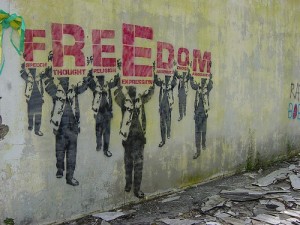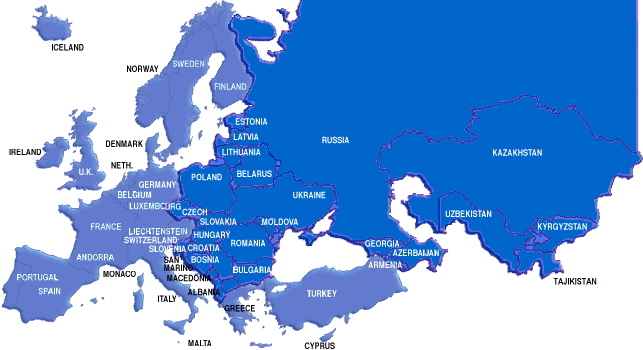Newsweek: Bulgarian Ski Resorts Trendiest in Eastern Europe
 Bulgaria boasts Eastern Europe’s most fashionable resorts, says an article in the January 14 Newsweek magazine issue. The magazine points out the opportunities to spend a holiday at Bulgaria’s top ski resorts like Borovetz and Pamporovo at low prices, which are a fourth of what tourists would pay in France’s or Switzerland’s winter resorts. “There has been a massive increase in the popularity in skiing in Eastern Europe,” says Chris Rand of the Britain-based tour company Balkan Holidays. EUR 150 million have been invested in Borovetz to make it a “modern European resort” with an additional 80 kilometers of family-friendly runs, Newsweek says.
Bulgaria boasts Eastern Europe’s most fashionable resorts, says an article in the January 14 Newsweek magazine issue. The magazine points out the opportunities to spend a holiday at Bulgaria’s top ski resorts like Borovetz and Pamporovo at low prices, which are a fourth of what tourists would pay in France’s or Switzerland’s winter resorts. “There has been a massive increase in the popularity in skiing in Eastern Europe,” says Chris Rand of the Britain-based tour company Balkan Holidays. EUR 150 million have been invested in Borovetz to make it a “modern European resort” with an additional 80 kilometers of family-friendly runs, Newsweek says.
The Church in Central Europe: Not Prepared for Freedom
 David Machajdik and Juraj Kusnierik
David Machajdik and Juraj Kusnierik
The mid-1980s saw some Christians in some local churches starting to speak about and “do” evangelism. The climate in society was changing. It became possible to share one’s faith in a secular environment. People from a completely atheistic background became Christian. It was not a mass movement, nor was it a “national revival.” The only possible (and still today probably the best) method of evangelism was sharing one’s life—including one’s relationship with God—with friends and relatives. All this was done informally, sometimes secretly. The word “ministry” with its spiritual connotations was as yet unknown.
Then came the revolutionary changes in 1989. Christians “went public.” The first (and at the same time the last) big evangelistic events took place. Famous evangelists visited Eastern and Central European capitals. Mission organizations supported by local churches started to do “street evangelism.” Religion was given air time on radio and television. Foreign missionaries arrived. It was only natural to expect a great growth in the church. However, this growth has not taken place. People see the church as important and as a useful component of society, but they themselves do not want to be under its influence. After the initial enthusiasm was over, the church somehow “faded out.” It is still there; it is surviving, but not growing very much.* The reasons are many. We are able to perceive and comment on only some of them.
The Church was surprised by the complexity of the free world. After 1989 Christian leaders did not have much to say about issues discussed in society such as nationalism, business ethics, or the role of the state. Even topics frequently discussed by Christians in the West (such as abortion, ethics, social involvement, or education) were new to the church in post-Communist countries. During the first years after the change of regime, leading personalities in the church did not see these issues as important. They thought that preaching the message of personal salvation did not need to take a new context into consideration. The Gospel was thus unintentionally reduced to a set of slogans without any connection with the complex reality of life. Methods learned from nineteenth century revivals did not always work in a post-Communist society.
Gaps in theology were patched up by fervent activism. Only a handful of English or German speaking pastors had limited access to theological literature and even that was more on a popular level. Classical works of systematic and historical theology were not available. There were big and significant gaps in theology as a result of forty years of atheistic socialism. Problems arose when a lack of theological insight was perceived as a virtue. Weakness was called strength. Theology was seen as a useless intellectualism, leading one to confusion. Many activities were going on, but superficiality was often their common denominator. Religious programs on television are easily recognizable by their naiveté, simplicity, superficiality, and cultural weirdness. They are also very boring. They do not usually have much to say to the ordinary skeptical Central European even if he or she is searching for truth and the meaning of life.
The Church in post-Communist countries has been burdened by its unresolved past. The great majority of Christians living under Communism were apolitical. That meant that they did not openly criticize the totalitarian regime in which they lived. They very rarely supported or had any relationships with dissidents. Some church leaders tried, with varying degrees of success, to win more freedom for their churches by a “controlled collaboration” with the Communist regime. An example of this was that some signed statements rejecting the demands voiced by any given dissident movement, even if they were usually convinced that the truth was on the side of the dissidents, in order to gain greater freedom for various ministries in their churches. It is difficult now to judge these acts. The Church has not as yet gone through the process of reflecting on its activities under the Communist regime. It is awkward now to speak about a life of truth, about ethics, or about a radical rejection of evil. It makes it very difficult to react to accusations of compromising behavior on the part of the church and its leaders.
An inferiority complex fostered a small view of God. Many Christians, when they entered the “public arena,” were embarrassed by the questions they were asked. People who did not take Christian assumptions for granted asked questions which Christian activists, whose message was “Jesus is the answer,” were not able to answer. To avoid this embarrassment, they did not give space for dialogue and swept unpleasant questions under the carpet. A strange kind of inferiority complex has developed: those who in theory believe in an omniscient and omnipotent God, those who in theory boldly proclaim that Christianity has all the answers, in practice are afraid of questions. Jesus is viewed as loving, compassionate, and pious. He is not very often seen as the most intelligent person who ever lived.
Evangelical churches remain inaccessible. Like a hangover from the previous regime Evangelical churches remain locked up and fenced in. Only the initiated can find their way around. To outsiders, churches are practically inaccessible. It is no surprise that in some smaller towns or villages strange rumors are spread about bizarre religious rituals which take place behind closed doors. Shortly after the fall of Communism we were putting up posters in the streets of Bratislava, advertising a public evangelistic meeting. A young Gypsy stopped by and asked us about other similar events. He was very much interested, but only until he found out that sexual orgies are not part of the program. For him Evangelical fellowships had that connotation.
The Church is distant from its cultural and social environment. This might be a residue of the fears inherited from the times of Communism, when Christians were afraid of spies and secret police. It could also be based on a subconscious, but often correct, assumption that if they enter into an authentic dialogue with non-Christian fellow citizens, they will not be able to give meaningful answers to their questions. They know Jesus is the answer, but they do not know what the question is. The Church has a tendency to accept the role imposed on it by the expectations of society. It then becomes a social institution, aimed at the development of ethics and charity. It loses sight of its ultimate goal, which alone gives meaning to its existence: to know God as the creator and the one giving meaning and purpose to the whole of life.
Struggling with the Past: Evangelicals in Postcommunist Europe (by Juraj Kusnierik)
The future is not what it used to be!’, shouted a Czech rock singer in 1990. He captured what many of us felt – the times have changed. Big banners proclaiming that ‘we are building a communist society’ were torn down from the façades of schools and factories. The alleged straight line of history – from capitalism through socialism to communism – was broken. Now, after six more years, most would agree that this line was nothing more than wishful thinking, an inverted utopia.
Solidarity trade unions in Gdansk, the opening of the western borders of Hungary, demolition of the Berlin Wall, and finally the Velvet Revolution in Czechoslovakia were not only political revolutions. The most significant change took place in our minds. A change so profound and sensitive that we are still too much ‘in it’ to evaluate it objectively. But we cannot avoid doing it anyway. It is like a piece of modern art – we have to see the frame to enjoy the picture.
Under communism modernity used to be identified with the Western world. Modern technology, modern fashion, modern music – although they had their ‘Eastern’ equivalents, those who wanted to be ‘really modern’ went for Western style (which was, for understandable reasons, usually not easy at all). Only after the regime that aspired to bring about the end of history came to an end, we discovered the obvious – that there could hardly be a more typical example of the modernistic project than communism with its ‘scientific atheism’, ‘historic materialism’ and social engineering. Modernistic assumptions had profound impacts on public life, culture, ethics and, to a very large extent, on the church. They are the shadows of the past, stretching over our largely post-modernist landscape, thus creating a unique blend of ‘post-communist post-modernism’.
What are the main characteristics of these times of transformation? Let me suggest some of them, dealing primarily with the church’s attitudes to the secular world.
Strong Authority Structures
The pastor of my church invited my friend and me for Sunday lunch. It was sometime in 1985, when some of us tried to communicate the gospel to our fellow university students. After lunch, this thoughtful and brave man said: “If the secret police question your activities, tell them that whatever you do (especially with regard to talking about God on the campus), you do because I asked you to do it. Tell them I am personally responsible for it.” This pastor created a space for evangelism, and bravely and without fear put himself into the position of responsibility before the state. However, in order to fulfill this responsibility, he had to be informed about all activities of all church members – including relationships with one’s boss or neighbours, family problems or one’s children’s performance in school. He often had his say when young people in the church were choosing their professions or education, and personally knowing some government bureaucrats, often helped them to get a good job or to be accepted at a university (for which one had to be politically screened). One of my friends – a very gifted violinist – had to study chemistry instead of music, because the pastor told him that to be a musician is not good for a Christian.
People in leading positions in church were well informed not only so that they could deal with the hostile government. They often assumed an extended control and power over the lives of their ‘flock’. Independent activity by church members was discouraged. The Church was more easily controllable when it was uniform and managed from one centre.
Some church leaders used their authority and power more wisely than others, but only a few could imagine a church without strong authoritarian leadership. It was both an impact of, and a reaction to the rigidly totalitarian structure of society. It was also an expression of anxiety and fear that the church would not survive into the next generation – which was what communist ideologists were saying, and Christians sometimes found it hard not to believe them. It is a paradox that many young people, growing up in evangelical churches, left them not because they lost faith, but because they wanted to protect their privacy and be free to make their own decisions.
Private Faith – Lack of involvement in Society
Most communist ideologists did not have much against ‘religion as such’. The problem arose as soon as religion critically spoke about ‘non-religious’ issues, especially politics. Christianity (or any other religion, for that matter) was tolerated if it stayed in one’s private sphere, or, in more liberal circumstances, in family or church. Keeping in mind the fact that there were times and places where one could end up in a concentration camp for just ‘being’ a Christian, it was a great improvement.
The division between public and private, with our religious affections belonging clearly to the latter, is deeply embedded in our minds. Of course, it was not communists who first came with this idea. It has been a central part of the modernist view of the world, however only the Communists had power to ‘design’ society accordingly.
Most Eastern European Christians accepted this division as one rule of the game. Several generations of Christians under the communist regime were taught they should be apolitical, they should use whatever opportunities to spread gospel. To be light and salt was understood almost exclusively as to give a good example by one’s behaviour.
Fear of Society – Minority Complex
The result of a lack of involvement in culture and society led to broken communication with non-religious people. The Church has not developed the language needed to communicate with those outside her own circles. Inability to communicate led to a fear of the non-Christian world. Believers tended to see themselves as a marginalized minority: with fixed rules, defensive attitudes, unwillingness to change, strong loyalty to the group, etc.. These were defensive mechanisms through which the minority has learned to survive and to keep its identity intact. One cannot say these are the result of persecution as they can be found where persecution does not exist; however, persecution certainly intensified the process.
There is a tension hidden in these attitudes. Evangelical Christians feel responsible for communicating the gospel to secular culture. They feel uneasy, if not threatened, when they have to step out of the safe environment of their churches. So they create ‘special events’, they try to export the church atmosphere and culture to the secular world, only to find out, by and large, that they talk to themselves again. This fosters their feelings of alienation from the world.
Modern Christians in Postmodern Culture
The three issues above – authority structures, privatization of faith, and fear of society – are, among others, marks of the strong influence that the communist version of modernity has had on our Christian community. Evangelical Christians have taken so many modernistic assumptions for granted that we often cannot tell the difference between them and our Christian convictions. While they might have helped us to survive red modernism, now it is over, they are now our burden.
The Church in post communist Europe finds itself in a period of profound transformation. Old authoritarian structures are not able to keep it together, An exclusive attitude to the world outside is no longer sustainable, defensive groups of believers are being marginalized even more.
Evangelical churches, especially their official establishments, are not very sensitive to these trends. Their main goal seems to be ‘to keep it as it is’. They hope for a major revival, with hymnbooks from the 19th century being taken from the shelves again, and enthusiastic evangelists ‘boldly preaching the Word’ on the streets. Why else would God have given us freedom?
There is a growing number of thoughtful people from all denominations who do not want to take either the assumptions of modernity or postmodernity for granted, who want to think them through and understand them, while, at the same time, re-discovering evangelical worship, community, spirituality and responsibility for public life. Whether in modern or postmodern culture, they want to seek a Christian alternative – so that the Gospel, and not our cultural assumptions would be the offence.
God gave us freedom. We did not deserve it. We enjoy it and we try to live and act responsibly. We hope God will bless us and help us in our time after modernity.








